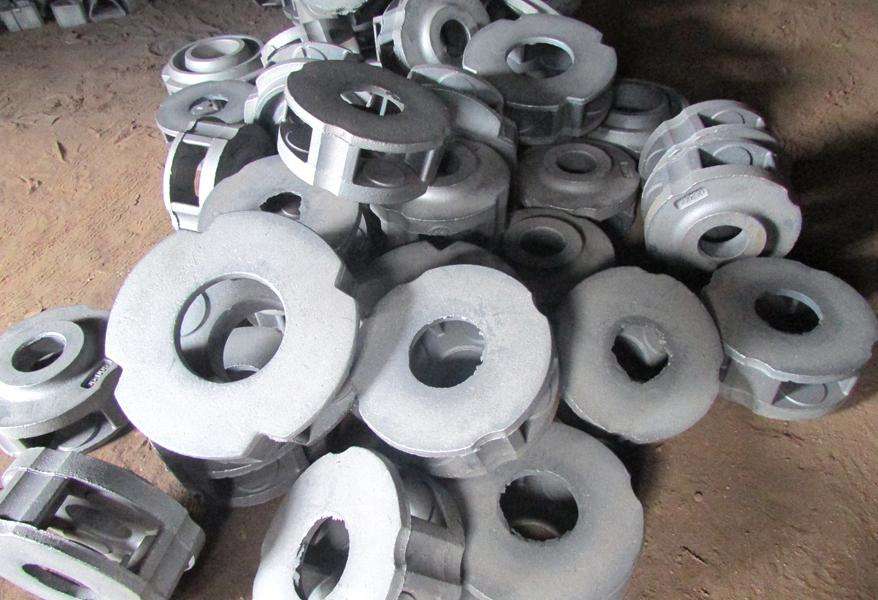9 Essential Facts About Cast Iron Casting for Industrial Applications
Dec. 20, 2024
Cast iron casting has played a pivotal role in the manufacturing and construction industries for centuries. Due to its unique characteristics, it continues to be an essential material for a wide range of industrial applications. In this article, we explore 9 essential facts about cast iron casting that highlight its importance and versatility in various sectors.
1. High Durability and Strength
Cast iron is well-known for its exceptional durability and ability to withstand heavy loads and stress. Industrial expert and mechanical engineer James Turner notes, “The combination of strength and wear resistance makes cast iron the go-to material for long-lasting components.” Common applications include:
Engine blocks
Machine parts
Heavy-duty construction equipment
2. Cost-Effective Manufacturing
Compared to other metals, cast iron casting is a cost-effective solution for producing large quantities of industrial components. Foundry specialist Laura Brooks explains, “The ease of casting complex shapes in cast iron helps reduce labor and machining costs, making it a highly economical option.” It is commonly used in:
Automotive parts
Home appliances
Infrastructure components
3. Superior Casting Ability
One of the key advantages of cast iron is its ability to be easily molded into complex shapes. Industrial designer Michael Green highlights, “Cast iron’s excellent fluidity allows it to capture intricate designs, which is why it is favored for detailed machinery components.” Typical uses include:
Pipe fittings
Decorative castings
Valve bodies
4. Excellent Wear Resistance
Cast iron’s ability to resist wear and tear is another reason it is commonly used in high-stress environments. According to materials expert Elizabeth Campbell, “Cast iron can endure extreme pressure without significant degradation, making it ideal for parts that are exposed to continuous friction.” Applications include:
Mining machinery
Agricultural equipment
Industrial pumps

5. Versatility in Industrial Applications
Custom Cast iron casting’s versatility allows it to be used in numerous industries, from automotive to construction. Industry analyst David Watson states, “Its adaptability across various sectors makes cast iron indispensable for different industrial processes.” Common sectors utilizing cast iron include:
Automotive industry
Construction
Railways
6. Great Vibration Damping Properties
One of the lesser-known benefits of cast iron is its ability to dampen vibrations, making it ideal for applications requiring stability. Mechanical engineer Richard Clark explains, “Cast iron components, like machine bases and frames, help reduce operational noise and vibrations, ensuring smoother functioning.” Applications include:
Machine tools
Heavy machinery foundations
Vibration dampers in buildings
7. Good Thermal Conductivity
Cast iron is an excellent conductor of heat, which makes it perfect for applications requiring heat transfer. Energy expert Amanda Phillips points out, “The high thermal conductivity of cast iron ensures efficient heat distribution, which is why it’s commonly used in cookware and heat exchangers.” Key applications include:
Cookware
Heat exchangers
Automotive brake discs
8. Corrosion Resistance
Although not as resistant to corrosion as stainless steel, cast iron still provides decent resistance, particularly when properly coated. Metal specialist Olivia Harris says, “By applying protective coatings, cast iron castings can resist corrosion, making them ideal for outdoor and marine environments.” Common uses include:
Stormwater pipes
Outdoor sculptures
Marine engine components
9. Eco-Friendly Manufacturing
Cast iron is a sustainable material as it can be recycled many times without compromising its quality. Environmental consultant Frank Davis explains, “The recyclability of cast iron makes it an eco-friendly choice for manufacturers looking to reduce their environmental impact.” Applications benefiting from cast iron’s sustainability include:
Recycled construction materials
Recycled industrial components
Eco-friendly products
In conclusion, OEM cast iron casting remains one of the most reliable and versatile materials in industrial applications. With its strength, cost-effectiveness, and wide range of uses, it continues to play a key role in various industries worldwide. As the need for durable and sustainable materials grows, cast iron casting is sure to remain a critical component of modern manufacturing.
155
0
0
All Comments (0)
Previous: How Can You Extend the Lifespan of Loader Cutting Edges?
Next: What can forging be classified into according to the forming method?
If you are interested in sending in a Guest Blogger Submission,welcome to write for us!


Comments